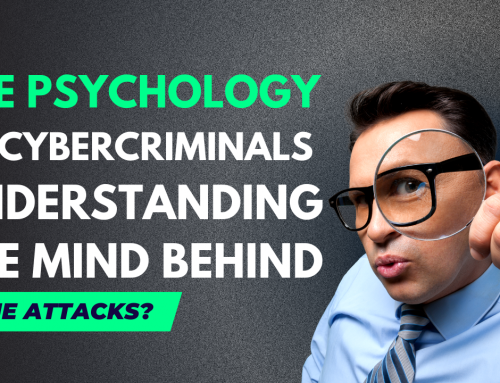As the CEO of Slick Cyber Systems, I am excited about the technological advancements we’ll witness in 2023. From the integration of AI and ML into businesses, to the development of innovative cybersecurity measures, the tech industry will continue to revolutionize the digital world. At Slick Cyber Systems, we are committed to staying ahead of the curve and providing our clients with cutting-edge solutions that enable them to leverage the latest tech trends to drive growth and innovation.
ArtificialIntelligence and MachineLearning
The world is becoming increasingly more digital, and emerging technologies are constantly evolving to meet the needs and demands of modern society. From artificial intelligence to blockchain, the technological landscape is changing at an unprecedented pace. Here are a few technologies that you should be aware of and how they can impact your business in 2023.
#ArtificialIntelligence #AI and #MachineLearning #ML have been among the hottest technology trends in recent years. AI and ML can analyze large amounts of data, identify patterns, and make predictions, enabling businesses to make informed decisions based on accurate insights. By implementing AI and ML, businesses can streamline processes, reduce costs, and increase efficiency.
One of the most significant advantages of AI and ML is their ability to automate mundane and repetitive tasks. This means that employees can focus on more complex tasks that require human expertise, such as customer service or strategic planning. As a result, businesses can increase productivity and reduce costs by automating tasks that were previously performed manually.
In addition to streamlining processes, AI and ML can also enhance customer experiences. By analyzing customer data, businesses can identify patterns in customer behavior and preferences, enabling them to provide personalized recommendations and experiences. This can lead to increased customer satisfaction and loyalty, which is essential for businesses to remain competitive in today’s market.
AI and ML can also help businesses to identify and mitigate risks. By analyzing data from multiple sources, AI and ML can identify potential risks and provide businesses with insights into potential threats. This can help businesses to proactively address potential issues, reducing the impact of risks and avoiding costly mistakes.
AI and ML are powerful tools that can significantly impact businesses in various ways. By implementing AI and ML, businesses can automate processes, enhance customer experiences, and identify and mitigate risks. As AI and ML continue to evolve, their potential to transform businesses and industries will only increase. Therefore, it is essential for businesses to stay up to date with the latest AI and ML trends to remain competitive in the ever-evolving market.
BlockchainTechnology
#Blockchain technology is another emerging trend that has the potential to revolutionize the way we conduct transactions and store data. Blockchain is a distributed ledger technology that enables secure and transparent transactions without the need for intermediaries. Technology has already been applied in various sectors, such as finance, healthcare, and logistics.
Why is Blockchain technology important?
Because it is a decentralized, digital ledger that records transactions and stores data in a secure and transparent manner. It allows for secure and transparent transactions without the need for intermediaries, such as banks or payment processors. Blockchain technology has gained widespread attention in recent years due to its potential to revolutionize various industries, including finance, healthcare, and supply chain management.
One of the most significant advantages of blockchain technology is its security. The decentralized nature of blockchain means that the data stored in it cannot be tampered with, making it an ideal solution for businesses that require high levels of security. Additionally, because transactions are recorded on a public ledger, it allows for transparency and accountability, which can be especially important for industries that deal with sensitive data.
Another advantage of blockchain technology is its potential to streamline processes and reduce costs. Because transactions are automated and don’t require intermediaries, businesses can reduce the time and costs associated with processing transactions. This can lead to increased efficiency and cost savings, which is essential for businesses to remain competitive in today’s market.
Furthermore, blockchain technology can help businesses to improve their supply chain management. By using blockchain, businesses can track products and transactions at every stage of the supply chain, from manufacturing to delivery. This can help to reduce the risk of fraud and counterfeiting and ensure that products are of high quality and comply with regulations.
Blockchain technology has the potential to revolutionize various industries by providing secure and transparent transactions, streamlining processes, and improving supply chain management. As blockchain technology continues to evolve, its potential to transform businesses and industries will only increase. Therefore, it is essential for businesses to stay up to date with the latest blockchain trends and consider implementing blockchain solutions to remain competitive in the ever-evolving market.
InternetofThings or IOT
The #InternetofThings #IoT is a network of interconnected devices, sensors, and machines that can communicate with each other. IoT has the potential to transform the way we live and work by connecting various devices and machines to create smart systems. IoT is already being used in various sectors, such as smart homes, healthcare, and transportation.
However, the proliferation of IoT devices also poses a significant security risk to businesses.
One of the most significant security risks associated with IoT is the sheer number of devices that are connected to the network. This can create a large attack surface, making it easier for hackers to gain access to sensitive data. Additionally, because many IoT devices are relatively simple and lack robust security features, they can be easily hacked, providing an entry point for cybercriminals to infiltrate the network.
Another significant security risk associated with IoT is the potential for data breaches. Because IoT devices are connected to the internet, they can collect and transmit sensitive data, such as personal information, financial data, and health records. If this data is not adequately secured, it can be accessed by hackers, leading to data breaches that can have serious consequences for businesses, including legal and financial ramifications.
While IoT has the potential to transform businesses by improving efficiency and automation, it also poses a significant security risk. Businesses must take steps to ensure that their IoT devices are adequately secured and that they have protocols in place to respond to security incidents quickly. Failure to do so can result in data breaches, loss of revenue, and damage to reputation, making it essential for businesses to take IoT security seriously.
CloudComputing
#Cloud #computing has been one of the most transformative technologies of recent years. Cloud computing enables businesses to store and access data and applications over the internet, rather than on local servers or personal computers. Cloud computing has already transformed the way businesses operate by providing them with scalable, flexible, and cost-effective computing resources.
Cloud computing is the delivery of computing services, including servers, storage, databases, and software, over the internet. The cloud offers businesses the ability to access data and applications from anywhere in the world, allowing for increased flexibility and collaboration. Cloud computing also offers businesses the ability to reduce costs by only paying for the services they use, rather than investing in expensive on-premises hardware.
One of the significant advantages of cloud computing is its scalability. Cloud providers can easily scale up or down their resources, allowing businesses to quickly adapt to changing needs. Additionally, cloud computing can improve collaboration, as employees can access data and applications from anywhere in the world, making it easier to work remotely.
However, despite the advantages of cloud computing, it also faces challenges in a modern business environment. One of the most significant challenges is security. Because cloud computing involves storing data and applications on servers that are owned and maintained by third-party providers, businesses must ensure that their data is adequately secured. Additionally, because the cloud is accessible from anywhere in the world, it can be more vulnerable to cyberattacks.
Another significant challenge is the potential for vendor lock-in. Because each cloud provider has its own proprietary software and architecture, it can be challenging to switch between providers. This can limit a business’s flexibility and make it more difficult to adapt to changing needs.
While cloud computing offers many benefits to businesses, including scalability, flexibility, and cost savings, it also faces challenges, including security and vendor lock-in. Businesses must carefully consider their needs and the potential risks associated with cloud computing before adopting it and ensure that they have robust security measures in place to protect their data.
AugmentedReality and #irtualReality
#AugmentedReality #AR and #VirtualReality #VR are technologies that have the potential to change the way we interact with the digital world. AR and VR are being used in various sectors, such as education, entertainment, and healthcare. AR and VR technologies can provide users with immersive experiences that blur the line between the physical and digital worlds.
Cybersecurity
#Cybersecurity has become increasingly important as more businesses and individuals rely on digital technologies. Cyber threats such as malware, phishing, and ransomware are becoming more sophisticated and complex. As a result, cybersecurity has become a top priority for businesses and individuals alike. Emerging technologies, such as AI and ML, are being used to enhance cybersecurity measures and protect against cyber threats.
Cybersecurity is one of the most critical issues facing businesses today. With the rise of cybercrime, businesses are at an increased risk of data breaches, which can lead to significant financial and reputational damage. The consequences of a data breach can include the loss of customer trust, legal and regulatory penalties, and the loss of revenue.
One of the primary reasons why cybersecurity is essential for businesses is that it helps to protect sensitive data. Businesses collect and store a vast amount of sensitive data, including personal information, financial data, and intellectual property. If this data is not adequately secured, it can be accessed by cybercriminals, leading to data breaches and the potential for significant financial and reputational damage.
Another critical reason why cybersecurity is important to business is that it helps to maintain business continuity. A cyberattack can disrupt a business’s operations, leading to downtime, lost productivity, and financial losses. By investing in cybersecurity measures, businesses can reduce the risk of cyberattacks and ensure that their operations continue to run smoothly.
Moreover, cybersecurity is essential for compliance with data protection regulations. Many industries are subject to specific data protection regulations, such as HIPAA in the healthcare industry and GDPR in the EU. Failure to comply with these regulations can result in significant financial penalties and damage to the business’s reputation.





